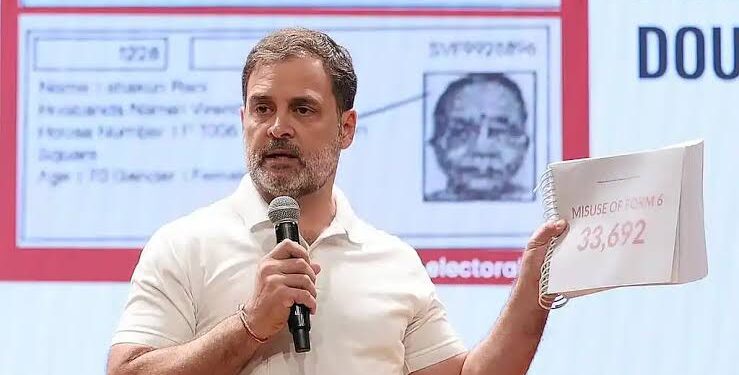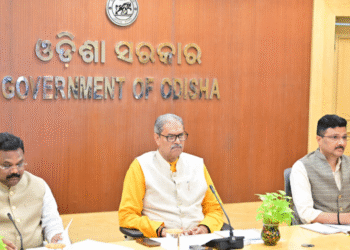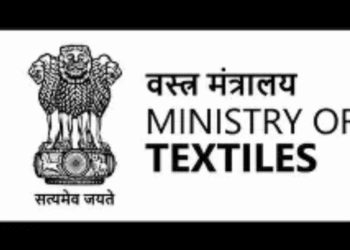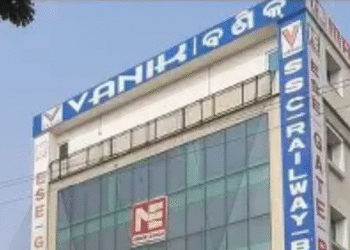Congress leader and Leader of the Opposition in the Lok Sabha, Rahul Gandhi, has levelled serious allegations of electoral fraud in the Mahadevapura assembly segment under the Bangalore Central Lok Sabha constituency, urging the Election Commission (EC) to investigate and take accountability.
Speaking at a press conference at the All India Congress Committee (AICC) headquarters in Delhi, Gandhi presented what he described as “concrete evidence” of irregularities in the electoral rolls—evidence that his team collected over a six-month-long ground verification exercise. The Congress claims the discrepancies in Mahadevapura contributed to its narrow loss in the Bangalore Central seat in the 2024 general elections.
According to Gandhi, the Congress team uncovered:
-
11,965 duplicate voters,
-
40,009 voters with fake addresses,
-
10,452 bulk voters listed under single addresses,
-
4,132 voters with invalid photographs, and
-
33,692 voters allegedly added through misuse of Form 6, a document used for new voter registration.
Gandhi cited examples, including 80 voters allegedly registered at a single address, 46 voters linked to a one-room dwelling, and 68 voters enrolled from a brewery, all of whom were reportedly missing during field verification. He alleged that one voter was listed in multiple polling booths.
While the Congress secured leads in seven out of eight assembly segments within Bangalore Central, the BJP’s unexpectedly large margin in Mahadevapura—over 1.1 lakh votes—secured the constituency for the party with a final lead of 33,000 votes.
Calling Mahadevapura a “model of vote chori (vote theft),” Gandhi questioned the Election Commission’s neutrality, claiming it is acting like an “umpire playing for the other team.” He argued that this case could be symptomatic of broader malpractice nationwide, referencing similar concerns raised previously in Maharashtra and Haryana.
The Election Commission responded by challenging Gandhi to make his accusations under oath, a move that drew criticism from opposition leaders and election observers alike. Critics argue the EC’s stance appears dismissive and does little to uphold public trust in the electoral process.
Gandhi reiterated that the core issue is no longer about Electronic Voting Machines (EVMs) versus ballot papers, but rather about the independence and integrity of the Election Commission itself.
“The ball is in the EC’s court,” Gandhi said, urging the poll body to respond with transparency. He demanded the release of digital electoral rolls and CCTV footage from polling booths for verification.
This is one of the most direct attacks on the Election Commission by a senior national leader in recent times. Analysts warn that if the EC fails to address these concerns scientifically and impartially, public confidence in Indian democracy could suffer long-term damage.
The Congress party’s allegations come at a time when multiple institutions face questions over political influence, and calls for electoral reform are growing louder. Gandhi’s press conference marks a significant escalation in this debate, placing further pressure on the Election Commission to demonstrate its autonomy and integrity.





























